On May 27 and 28, the ChETEC-INFRA consortium met in Strasbourg. Hosted by IPHC, the 4th General Assembly brought together consortium members and nuclear astrophysicists from outside the consortium, to discuss developments in nuclear astrophysics and catch up on developments of the Research and Networking activities within ChETEC-INFRA, as well as the Infrastructures in the …
Author Archives: ChETEC-INFRA
Workshop on “Big Three” Fusion Reactions now Open for Registrations
A workshop on the state of the art for 12C(α,γ)16O, 12C+12C fusion, and 22Ne(α,n)25Mg in nuclear astrophysics will be held on May 29, 2024, in Strasbourg. Participant registration to join the workshop on-site or online is now open.
Registration Opens for 4th General Assembly
The fourth ChETEC-INFRA General Assembly will be held in Strasbourg from May 27 to 28, 2024. As for previous Assemblies – online, in Padua and in Debrecen – the program will feature progress reports from within the project, as well as scientific talks in the field of nuclear astrophysics in general. Registrations on the conference …
Continue reading “Registration Opens for 4th General Assembly”
Transnational Access to 13 Facilities: Proposals Collected until February 17, 2024
The Transnational Access program of ChETEC-INFRA supports access to 13 European infrastructures for nuclear astrophysics studies. Facilities include observatories, ion-beam accelerator laboratories, and a high-performance computing cluster. Access can be provided in different ways. While some facilities mainly offer access in visitor mode (users traveling to the facility to conduct their project with financial support …
Statement on the Hamas Attack on Israel
The ChETEC-INFRA community strongly denounces the heinous, terrorist assault that was launched against Israel on October 7, 2023. The scientific community in the field of nuclear astrophysics in Europe expresses its solidarity with the Israeli people, particularly the scientists and their families who have been impacted, and especially to our ChETEC-INFRA partners at the Hebrew …
Call for Transnational Access Proposals: Visitor and Service Mode at Facilities
ChETEC-INFRA’s Transnational Access program offers access to 13 facilities in the field of nuclear astrophysics, spanning from accelerator laboratories for accelerator mass spectrometry (at DREAMS and VERA), accelerator facilities for ion beam experiments (Felsenkeller Accelerator Laboratory, Tandem Accelerator at the University of Cologne, Cyclotron at Atomki, van-de-Graaff accelerator at the University of Frankfurt, Tandetron accelerator …
Continue reading “Call for Transnational Access Proposals: Visitor and Service Mode at Facilities”
High School Students Visit Camp on Astrophysics at TU Dresden
24 students from schools of the national Excellence School Network MINT-EC conducted research on astrophysics at the TUD Dresden University of Technology from October 23 to 26, 2023. For four days, they worked together with scientists from the Institute for Nuclear and Particle Physics of TU Dresden and from the DeltaX School Lab at the …
Continue reading “High School Students Visit Camp on Astrophysics at TU Dresden”
Transnational Access to 13 Facilities: Next call closing November 17, 2023
The Transnational Access program of ChETEC-INFRA supports access to 13 European infrastructures for nuclear astrophysics studies. Facilities include observatories, ion-beam accelerator laboratories, and a high-performance computing cluster. Access can be provided in different ways, depending on the facility, either in service-mode, or hands-on. Facility access is provided free of charge to the user, and awarded …
Continue reading “Transnational Access to 13 Facilities: Next call closing November 17, 2023”
ChETEC-INFRA Observational School (ChINOS) Concluded Successfully
The first edition of the ChETEC-INFRA Observational School (ChINOS 2023) was held at the Ondřejov Observatory near Prague in the Czech Republic. Participants of the school followed a program of lectures, scientific discussions and hands-on activities. As a special opportunity, the hands-on experience included three nights of remote observations at the Nordic Optical Telescope. Favorable …
Continue reading “ChETEC-INFRA Observational School (ChINOS) Concluded Successfully”
Nuclear Astrophysics Masterclass Aboard the “MS Wissenschaft”
The MS Wissenschaft, an initiative by the German Federal Ministry of Education and Research describes itself as “a floating science center with exhibits for testing and participation”. At anchor in Vienna, the ship offered a unique environment for more than 100 high school students to follow the ChETEC-INFRA Masterclass on astrophysics. Led by Stephanie Adler …
Continue reading “Nuclear Astrophysics Masterclass Aboard the “MS Wissenschaft””
